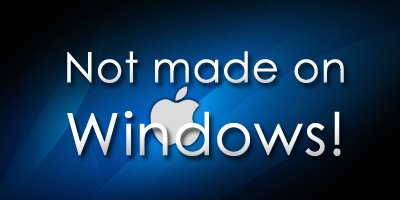Now one thing I like about Apple programmes is that most are contained in that single .app file. To uninstall, simply move that to the trash. However, unbeknownst to you, many also create files scattered about your hard drive, and when you delete the .app file, it does not delete these files.
Cue AppTrap.
AppTrap (when running) detects when you send a .app file to the trash and asks you if you want to delete the other system files associated with that app. A nice little cleanup preference pane to help keep things tidy.
Links:
AppTrap
16 March 2009
50th Post!
This is the fiftieth post on this esteemed weblog! That calls for a celebration.
Happy fiftieth to, well, me! Congratulations, you're well on your way to being a blog centurion.
07 March 2009
Preventing .DS_Store
A helpful hint I found in the Apple Knowledge Base today.
Because I still have a Windows machine hanging around (in its death throes, I might add) and dislike lots of hidden files lying around (one of my little annoyances with Mac), I was excited to see there is an easy way to prevent the .DS_Store files from being created on your networked drives.
Open Terminal and type:
defaults write com.apple.desktopservices DSDontWriteNetworkStores true
and then hit enter.
After a reboot, this should disable any more of those from being created. Whether the old ones ever get deleted is up to you and your OCD.
There is a disclaimer that this "can cause unexpected Finder behaviour," but nothing too dire will occur.
Links:
Apple Knowledge Base Article
Because I still have a Windows machine hanging around (in its death throes, I might add) and dislike lots of hidden files lying around (one of my little annoyances with Mac), I was excited to see there is an easy way to prevent the .DS_Store files from being created on your networked drives.
Open Terminal and type:
defaults write com.apple.desktopservices DSDontWriteNetworkStores true
and then hit enter.
After a reboot, this should disable any more of those from being created. Whether the old ones ever get deleted is up to you and your OCD.
There is a disclaimer that this "can cause unexpected Finder behaviour," but nothing too dire will occur.
Links:
Apple Knowledge Base Article
Subscribe to:
Comments (Atom)



